One of the biggest debates in kitchen and home design is this: should granite be replaced by marble, or quartz? While more developers are looking toward quartz as an alternative to marble, neither one clearly outweighs the other. But there are four different categories that compare the two materials, and can help both developers and homeowners decide which one best suits them. Their appearance, durability, maintenance and overall cost can play a part in choosing which one is better to replace granite.
For appearance, it is largely a matter of preference. According to MSI Surfaces, while Quartz is more uniform in its design and color, it can also mimic the look of natural stone as well. Meanwhile, with marble, each slab is one-of-a-kind. If you have marble as your kitchen countertop, no other counter will be the same as that one. The uniqueness adds a classic beauty to any room.
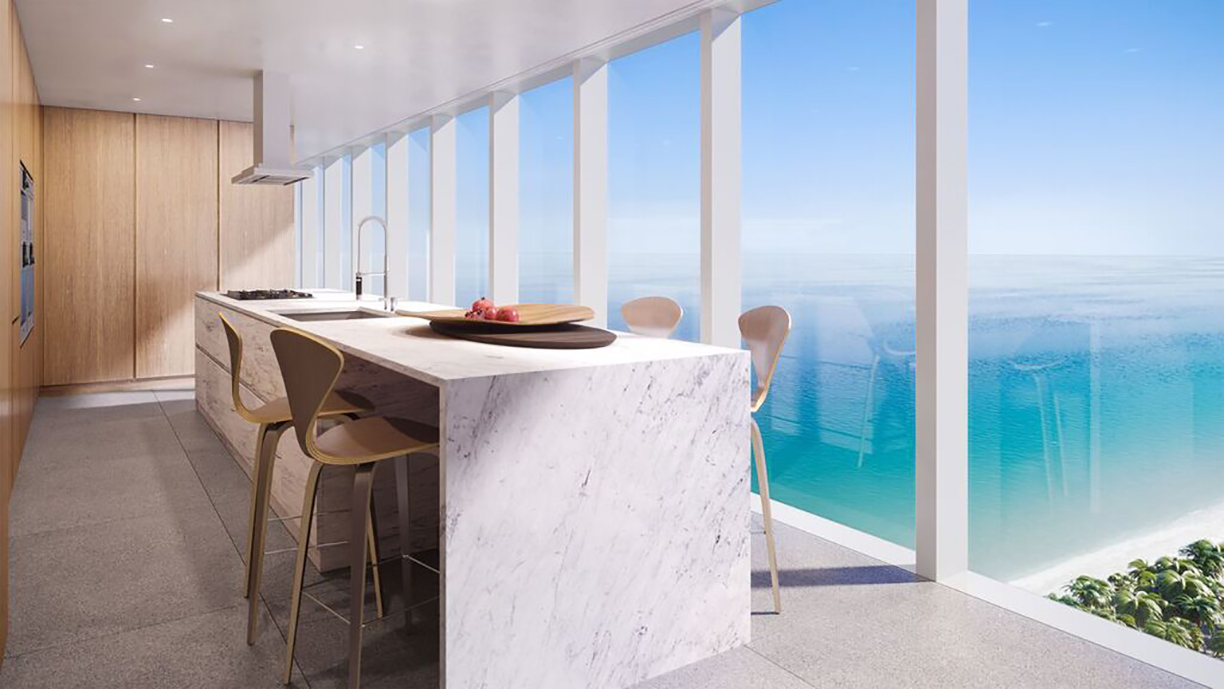
Renderings courtesy of KAR Properties (Marble)
Marble
Quartz
Appearance
- One-of-a-kind
- Natural stone rather than man-made
- Uniform in design and color
- Man-made, but mimics natural stone
Durability
- Can get stained or discolored more easily
- Overall, durable and dependable
- Direct sunlight or UV rays can cause irreparable discoloring
- Overall, durable and dependable
Maintenance
- Sitting water can cause discoloration or stains
- Overall, more maintenance is required
- Hot pots or pans sitting on it can scorch the stone
- Overall, less maintenance is required
Price
- More expensive per square foot
- $50-150 per square foot
- Less expensive per square foot
- $40-100 per square foot
In terms of durability, both are great options. Quartz is man-made, but is increasing in popularity because of the material’s durability. Marble is from many different countries around the world, and is also a durable but natural material as well. With quartz, however, any direct sunlight or high UV rays can cause irreparable discoloring, according to Polycor. Although both can gain chips on their edges and other minor damages, neither are fragile or impractical for everyday use. For durability, both quartz and marble are great options.
Marble requires more maintenance since it is natural stone. Sitting water on a marble countertop can cause discoloration and stains. For individuals with a busy lifestyle, quartz would be much easier to manage. But with quartz, make sure not to place any hot pots or pans on the counter — doing so could scorch the material. In terms of overall maintenance, however, quartz is generally a better fit.
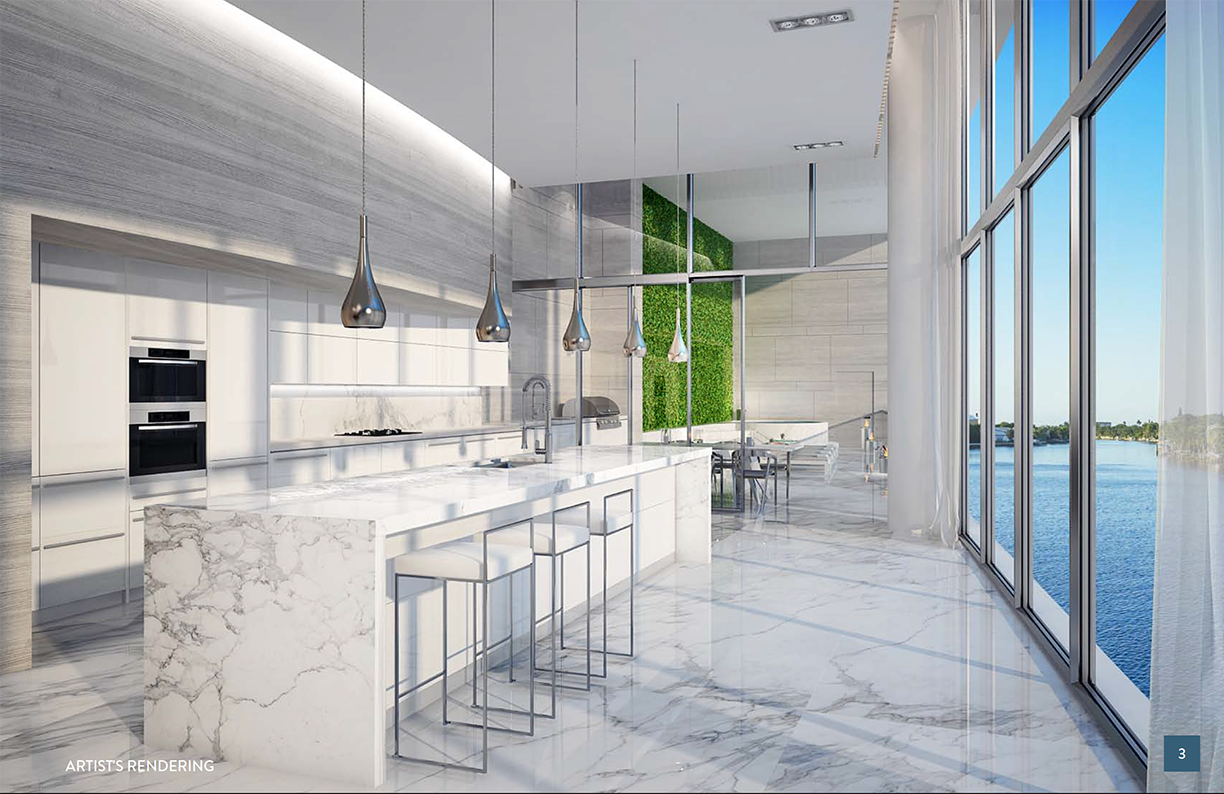
Rendering courtesy of RIVA Residences (Quartz)
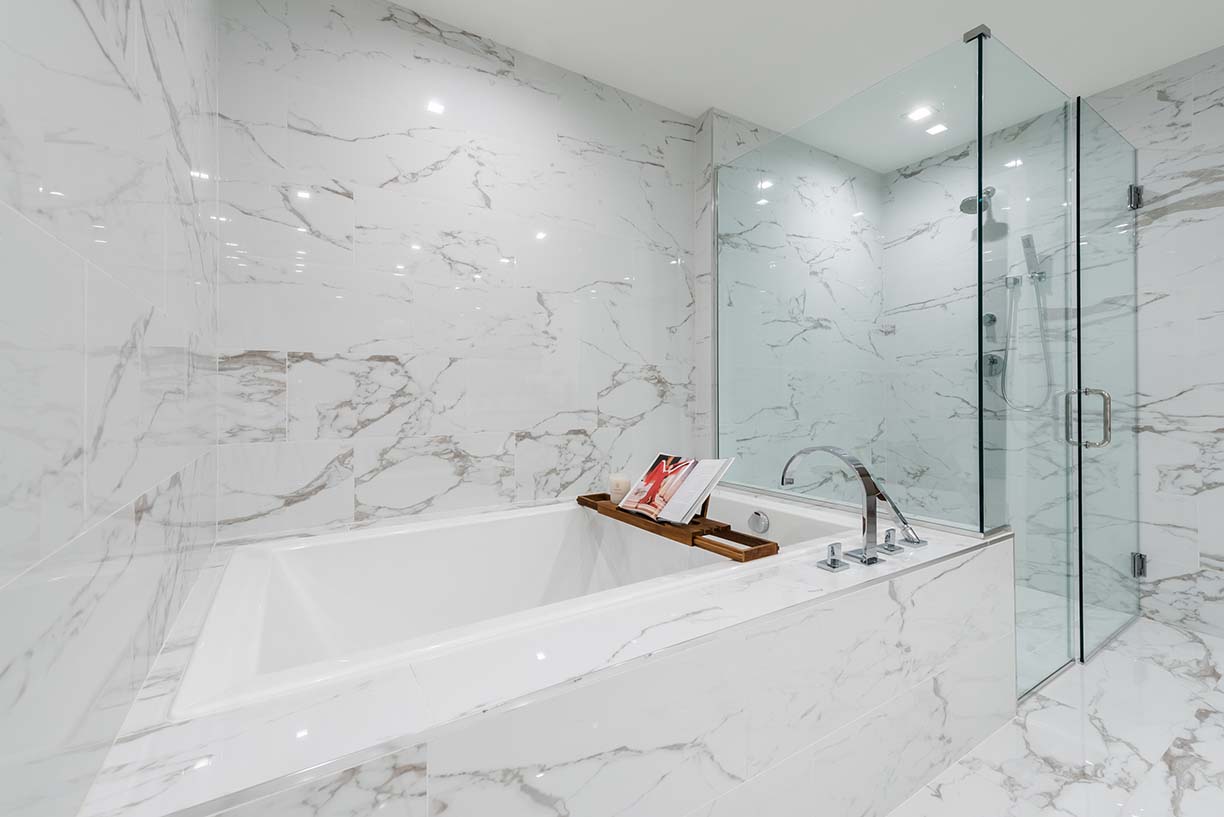
Rendering courtesy of Akoya Boca West (Quartz)
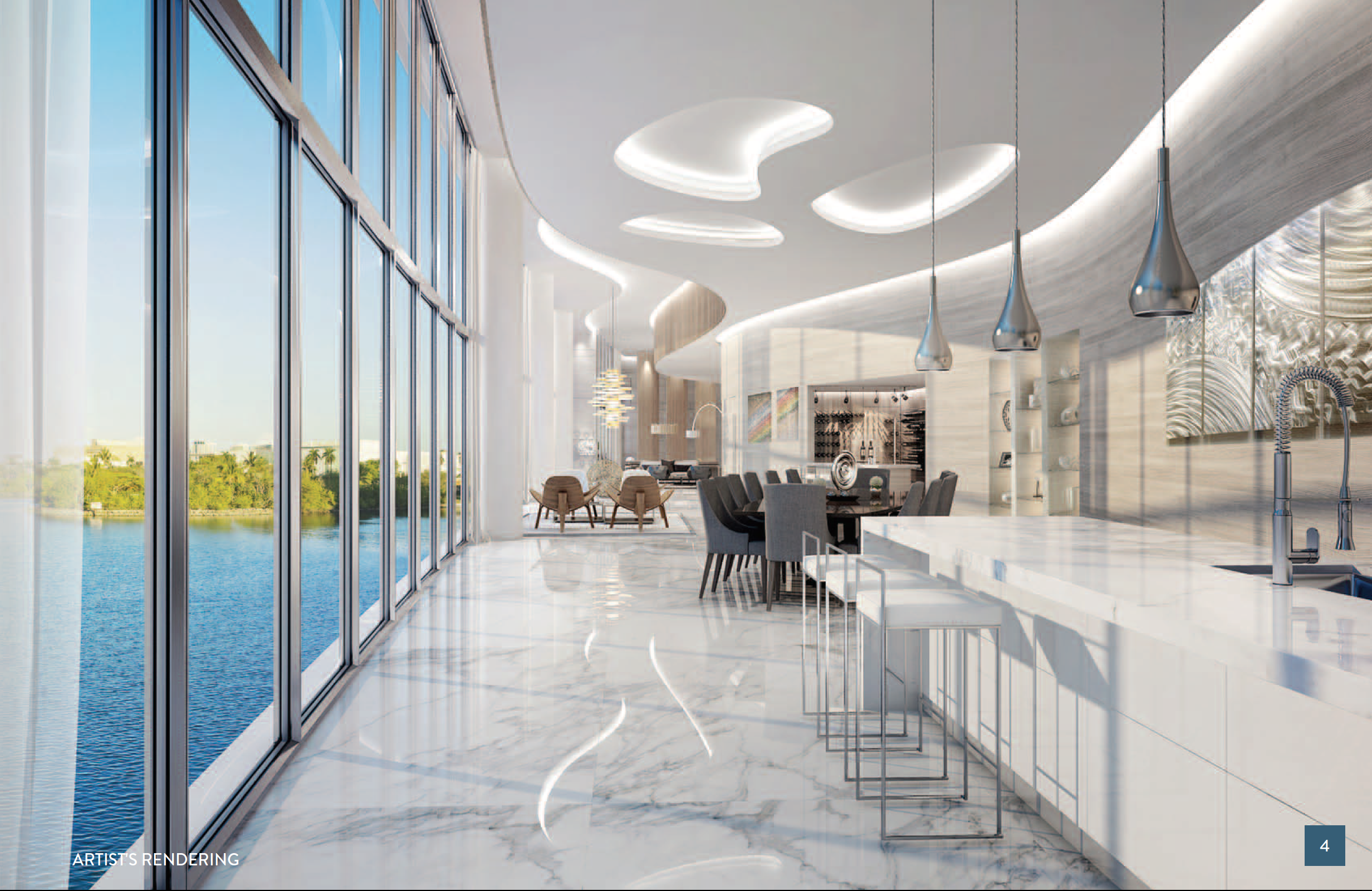
Rendering courtesy of RIVA Residences (Quartz)
Lastly, marble is usually more expensive than quartz. MSI Surfaces explains that while each square foot of marble is only slightly more expensive than quartz, that price tag can quickly add up when designing a whole room. Despite the overall added price, however, marble can add to a home’s value, so it might be worth it in the long run for some homeowners and designers.
While quartz is more practical in terms of durability and maintenance, nothing is like the one-of-a-kind material found with marble. In the end, knowing both materials’ advantages and setbacks can help determine which one works best.

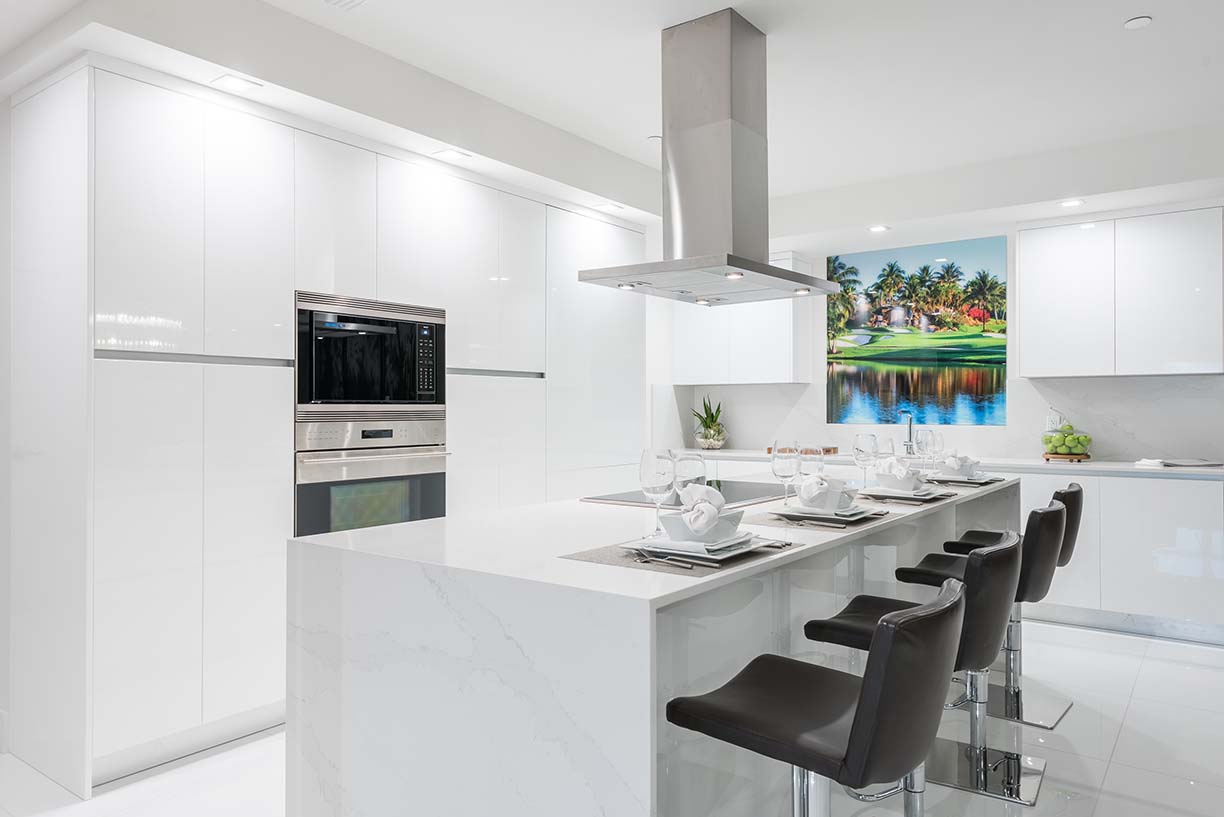
Rendering courtesy of RIVA Residences (Quartz) Rendering courtesy of Akoya Boca West (Quartz)



Leave a Reply